How Doctor Who shaped my queer identity
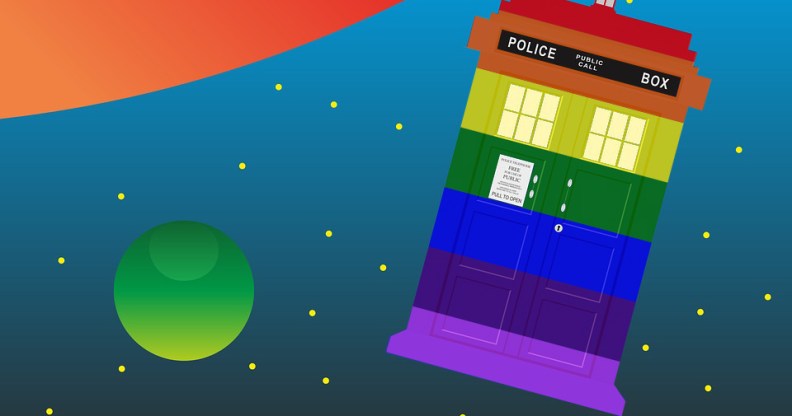
Doctor Who rainbow TARDIS. (Illustration by James Page)
With Doctor Who returning to our screens this weekend, starring Jodie Whittaker as the nation’s favourite two-hearted alien, I’ve had a chance to reflect on why the BBC’s flagship show is so important to me.
Before being proud of labelling myself as a gay man, I found gratification in words such as nerd and geek. These terms reflected my identity while growing up in a similar way that LGBT+ does today.
Despite being the kid who watched Doctor Who inside, while everyone else was outside playing football, these adventures in time and space shaped me more as a person than scoring a hundred goals ever could.
Who am I kidding. I could never score a goal.
But it’s only now, a few days before the first woman is taking on the title role, that I’m understanding how pivotal the science-fiction drama was in shaping my queer identity.
Since its 2005 revival, Doctor Who has portrayed a wealth of LGBT+ characters and topics, and has frequently been light years ahead of other mainstream programming.
When rewatching the show (with this article being a good excuse to spend countless hours on Netflix), I’ve wondered whether one of the reasons I was so enticed with Doctor Who was because of its queer undertones and its protagonist—an outsider who could arguably represent LGBT+ minorities.
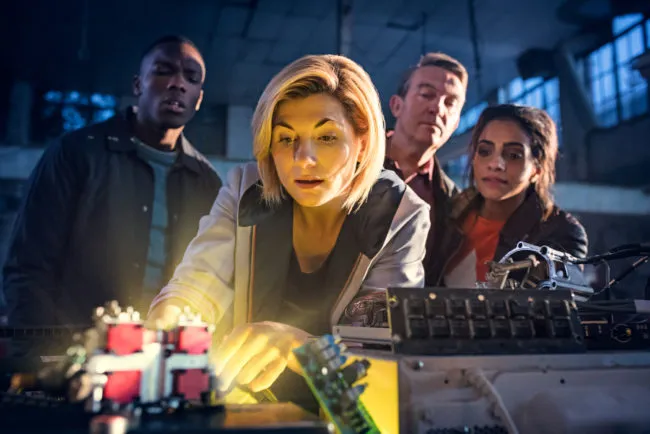
Jodie Whittaker is the new Doctor. (Sophie Mutevelian/BBC)
The thirteenth Doctor proves that Doctor Who can be an incredibly progressive and fearless series, however, the show has been brave in showcasing diversity for over 50 years. The impact this has had can be seen when talking to its millions of fans worldwide, including myself.
So other than a giant crush on David Tennant, what was it that made Doctor Who so monumental in shaping my queer identity?
Sexuality and the Whoniverse
I was 11 when the show returned to our screens in 2005 and I hadn’t seen any LGBT+ representation in popular media, which is bizarre considering how much TV I used to watch.
Doctor Who was under the helm of Russell T. Davies, the brain behind Channel 4’s Queer as Folk, which unapologetically showed audiences an insight into gay life in the late 1990s.
Although it seems rather obvious now that Doctor Who was on course to attract queer audiences, I was unaware of Davies’s past record of LGBT+ representation in television and what this could mean for the science-fiction drama. But to be fair, I was only 11.
The first season of the revived show introduced Captain Jack Harkness, portrayed by the openly gay actor John Barrowman. Jack identified as an omnisexual, which meant he was attracted to men, women and… aliens.
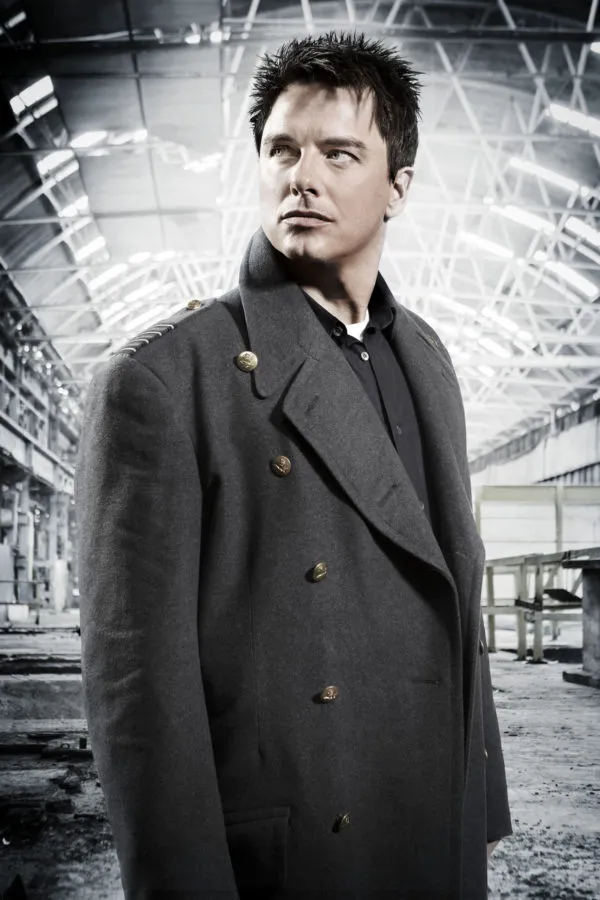
Captain Jack Harkness played by John Barrowman. (BBC)
But as the Doctor explained to Rose Tyler, and arguably an audience who hadn’t seen many characters like Jack before, “Relax, he’s a 51st century guy. He’s just a little more flexible. By his time, you lot have spread halfway across the galaxy. So many species, so little time.”
Although I was cowering behind a pillow during this episode (come on, it was the one with the gas mask zombies—you were too), I still remember hearing this exchange and thinking how cool it was that the Doctor didn’t make a big deal out of it.
I wouldn’t say I fully knew what my sexual orientation was at this age, but I was definitely drawn to the ideas of disregarding labels and not judging someone on who they fancied, which, in Jack’s case, seemed to be everybody.
As I grew older, I remained an obsessive viewer of the show and watched as more and more LGBT+ characters were introduced. This was sometimes subtle, with a throwaway line about a minor character’s same-sex partner, but often made more obvious with the introduction of new recurring queer characters.
From a lesbian crime-fighting couple, to the introduction of bisexual characters such as River Song, and recently the openly gay companion Bill Potts, Doctor Who made strides in its representation throughout my childhood.
I think what made this so powerful for me was the fact that these characters were universally liked. Who could dislike Captain Jack’s charm or not view a sword-wielding reptilian lesbian and her wife as badass? (Try saying that five times fast.)
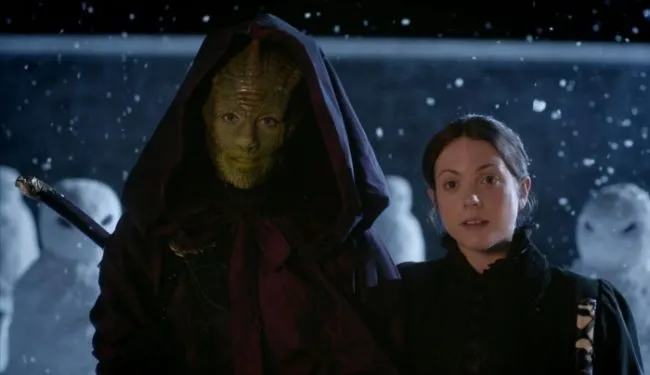
Madame Vastra and Jenny. (BBC)
Seeing my friends and family enjoy—and even relate—with these characters made me feel safer with who I was.
I remember my straight male friend being excited by Captain Jack returning to the series in 2007, and in turn that made me feel more accepted by him despite still being very much in the closet. If he liked Jack, who was vocal in his attraction towards men, then maybe my coming out wouldn’t damage our relationship?
With the last season of Doctor Who starring Pearl Mackie as the first openly gay companion Bill Potts, I can only imagine the similar effect that this had on young LGBT+ viewers.
Pete McTighe, one of the writers of the new season, told me that, “in presenting characters like Captain Jack, and Bill Potts, Doctor Who has helped facilitate and normalise attitudes [towards LGBT+ people].
“Doctor Who has always been a force for positivity, inclusivity, and equality. For me growing up, the show felt like a safe place.”
Doctor Who was a safe place for me, too. I related to so many of the characters, and the show offered the representation that was lacking from other primetime programmes. The Doctor’s constant disregard of labels also made me feel normal, and as though I was not so different from everyone else.
The Doctor is one of my LGBT+ icons
“The Doctor is a perennial outsider and a loner character, who loves the world that he/she nevertheless struggles to fit into. It’s an easy fit for LGBT+ kids to project some of their own struggles onto his/her shoulders,” Tom McRae, the writer of one of my favourite Doctor Who episodes, “The Girl Who Waited,” told me.
The Doctor’s quirkiness and outsider qualities drew me to the character immediately when growing up. He was just as awkward as I often felt, but had mountains of confidence and charm.
The character’s sense of never fitting in on Earth in normal situations could reflect the feelings many queer people have when struggling to fit in with a heteronormative society. It did for me anyway, and I viewed the Doctor as an optimistic character, who saw the light in any situation, no matter how dark or difficult it got.
The Time Lord was also friends with characters from across the sexuality spectrum, which made me view him both as a reflection of queer people and as the ultimate ally of the LGBT+ community.
His/her acceptance of anyone from any background makes me wonder whether all of us would stop caring about labels if we all lived to be over 2,000 years old, and focus on the things that really mattered?
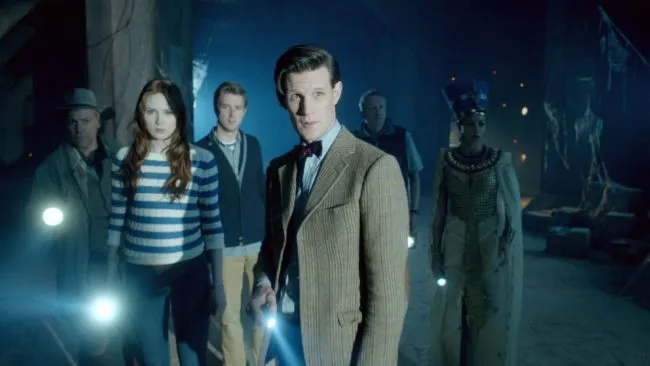
Matt Smith as the Doctor. (BBC)
Doctor Who and self-acceptance
When growing up, I really struggled to be comfortable with my sexuality. I was worried about liking stereotypically gay interests and strayed away from listening to music and watching programmes that were deemed “too gay” by others.
Because of this, I felt the desire to find something that portrayed LGBT+ themes, but wasn’t immediately associated with being gay, and Doctor Who fit the bill perfectly.
The time-travelling drama allowed me to embrace and connect with gay characters and enjoy the overarching themes of acceptance and love without fearing my interest would out me to my parents and friends.
Although there were many other aspects of my life that helped me become comfortable with my sexuality, Doctor Who was one of the earliest influences in building my confidence and self-acceptance.
I feel like I owe a lot to the show. Its stories influenced my decisions and outlook on life whilst growing up and arguably helped make me the person I am today.
Remembering the effect seeing queer characters on screen had on me, and countless others, as a child truly shows the importance of representation in television.
With the upcoming season promising to represent characters from across the sexuality spectrum, I’m very excited to see what the show can further do to blur the edges of sexuality and gender for a primetime audience.

